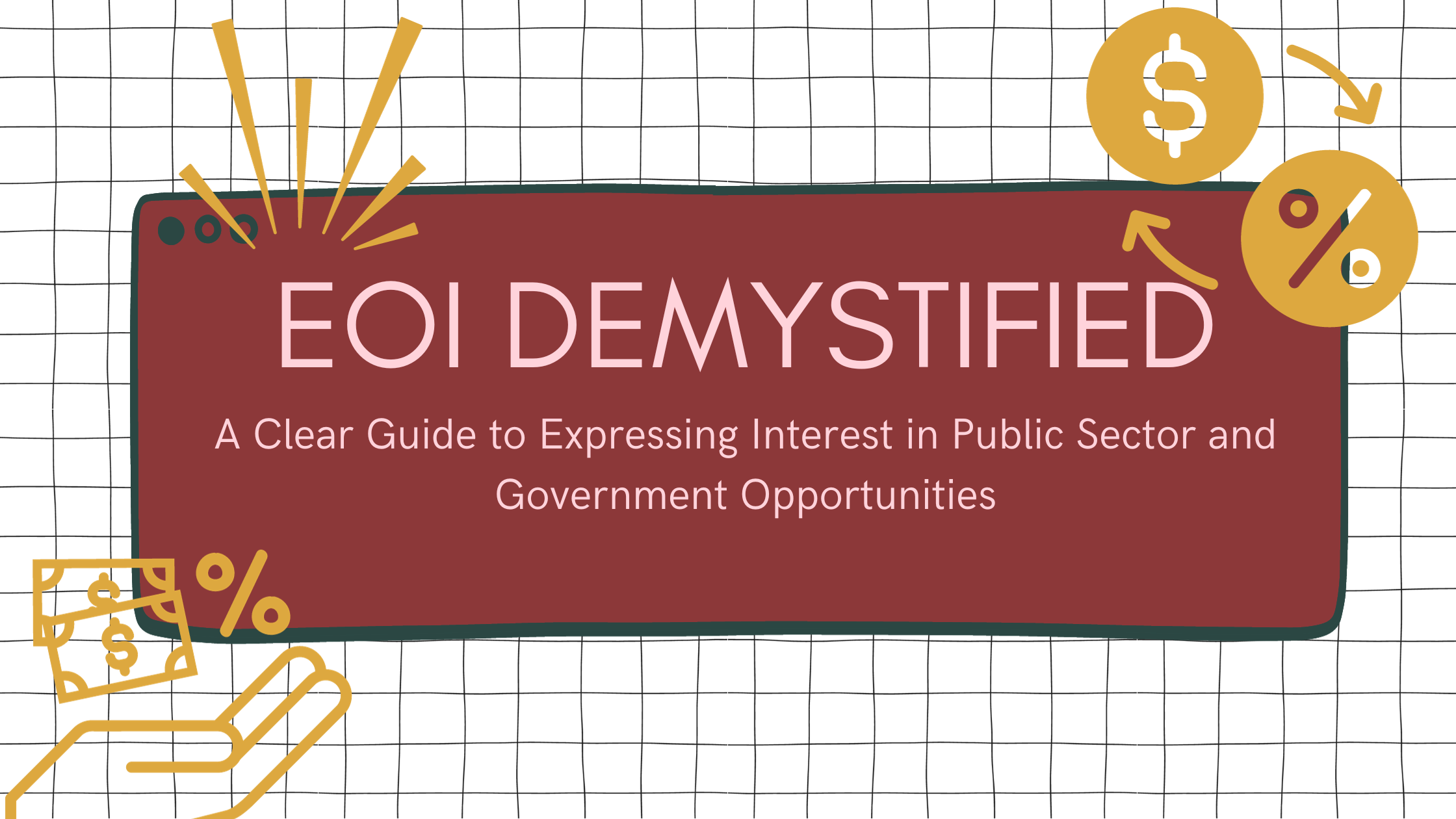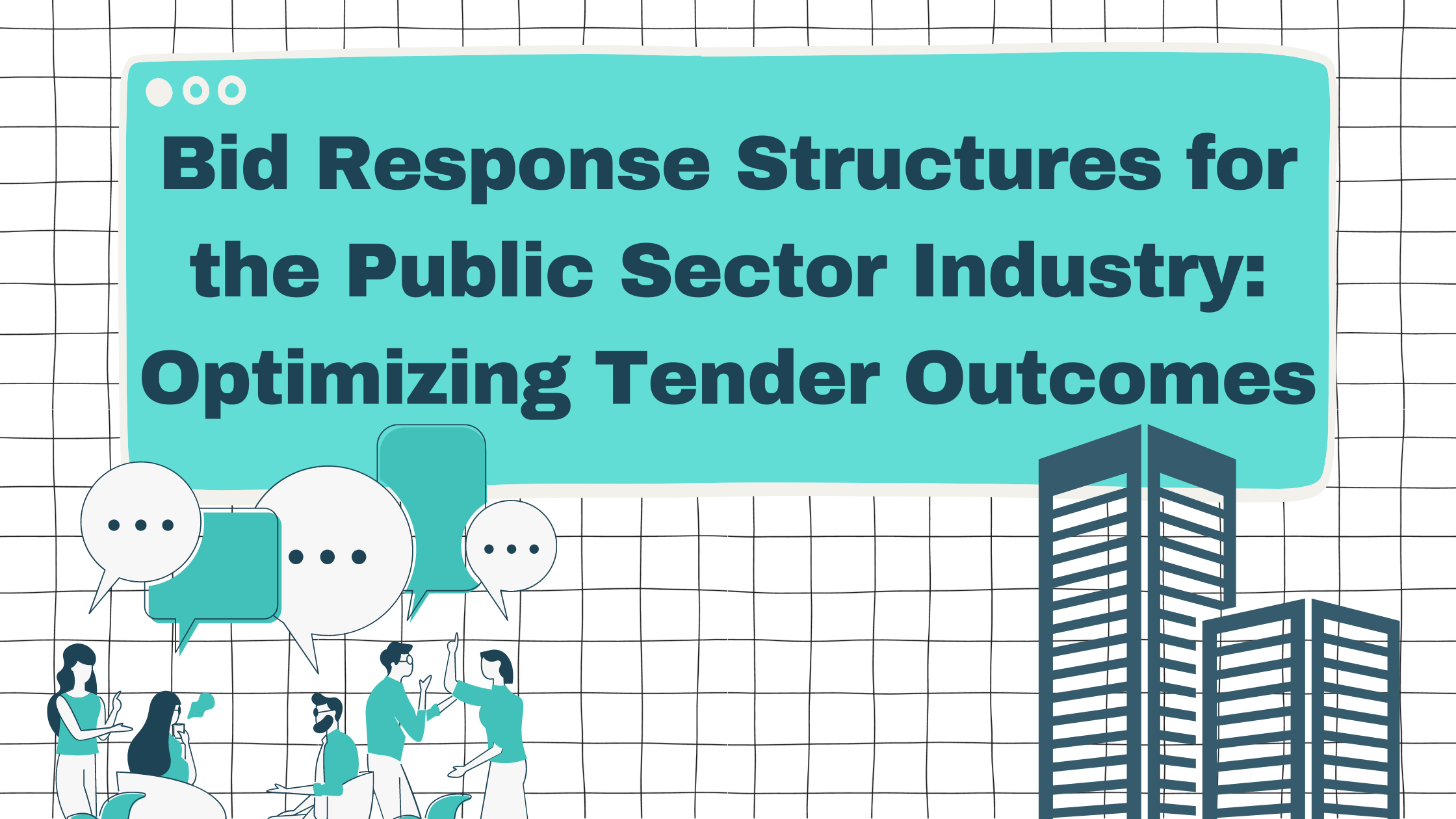Mastering Proposal and RFP Writing Services: Essential Insights and Strategies

Need Help with Your Bid?
Get in touch by filling out the form and one of our advisors will be in contact.
Contact UsTendering is an essential process in the procurement of goods and services. It is a formal process that involves inviting bids from potential suppliers to provide goods or services. Tendering is a complex process that requires an understanding of several legal aspects. Failing to comply with these legal aspects can result in costly legal battles and loss of reputation.

Understanding the legal aspects of tendering is crucial for both buyers and suppliers. As a buyer, you need to ensure that you comply with the procurement regulations, while as a supplier, you need to ensure that you meet the requirements and conditions set out in the tender documents. In this article, we will explore the legal aspects of tendering, including the impact of Brexit on tendering, the tender evaluation process, and frequently asked questions.
Key Takeaways
- Tendering is a formal process that involves inviting bids from potential suppliers to provide goods or services.
- Understanding the legal aspects of tendering is crucial for both buyers and suppliers.
- This article explores the legal aspects of tendering, including the impact of Brexit on tendering, the tender evaluation process, and frequently asked questions.
Understanding Tendering
When it comes to procurement, tendering is a crucial process. It is a formal process that involves inviting bids from potential suppliers or contractors to provide goods or services. Tendering is used in both the public and private sectors, and it is an essential part of the procurement process.
The tendering process involves several steps, including pre-qualification, issuing an Invitation to Tender (ITT), evaluating tenders, and awarding the contract. The pre-qualification process involves assessing the suitability of potential suppliers to ensure they meet the minimum requirements for the contract. This process can include submitting a Pre-Qualification Questionnaire (PQQ) and providing information on past work and method statements.
Once the pre-qualification process is complete, the ITT is issued, which provides detailed information on the contract opportunity. The ITT will include the evaluation process, scorecard, and any other relevant information. Bidders can request clarification on any aspect of the ITT during the competition stage, but they must do so before the deadline.
After the deadline, a standstill period begins, during which the contracting authority must not award the contract. During this period, unsuccessful bidders can request feedback on their bid and evaluation. The contract can only be awarded after the standstill period has ended, and the contract award notice has been issued.
It is essential to follow the procurement policies and procedures, including using objective and non-discriminatory criteria when evaluating tenders. Weighting can be used to show the relative importance of different criteria. It is also important to ensure interoperability and modification of the contract if necessary.
Overall, understanding the tendering process is crucial for both procurers and suppliers. It requires skills and knowledge of procurement law and procurement matters. By sourcing the most economically advantageous tender and selecting suitable suppliers, we can ensure the best value for money for our organization.
Legal Aspects of Tendering
When it comes to tendering, there are several legal aspects that we must keep in mind. These aspects are crucial to ensure that the tendering process is fair, transparent and non-discriminatory.
One of the key legal frameworks that govern tendering is EU law. The EU has set out several principles that must be followed when conducting tendering exercises. These principles include non-discrimination, transparency, and equal treatment. It is important to ensure that these principles are adhered to throughout the tendering process.
In addition to EU law, there are also several pieces of legislation that must be followed when conducting tendering exercises. These include the Public Contracts Regulations 2015 (PCR 2015) and the Utilities Contracts Regulations 2016 (UCR 2016). These regulations provide guidance on contract award procedures, works contracts, and other aspects of public sector procurement.
Contracting authorities must ensure that they follow the correct procedures when conducting tendering exercises. This includes ensuring that the tender process is open and that all interested parties have an equal opportunity to participate. It is also important to ensure that the tender documents are clear and that all bidders have access to the same information.
If a bidder feels that they have been unfairly treated during the tendering process, they have the right to challenge the decision. This can be done through various remedies, including the use of the courts or other dispute resolution mechanisms.
Overall, it is important to ensure that the legal aspects of tendering are carefully considered and adhered to. This will help to ensure that the tendering process is fair, transparent, and non-discriminatory, and that all bidders have an equal opportunity to participate.
Impact of Brexit on Tendering
As a result of Brexit, there have been changes to the legal framework surrounding tendering. While some of the changes are minor, there are significant implications for businesses that tender for public contracts.
One of the key changes is that UK contracting authorities and utilities can no longer discharge their transparency obligations by advertising their contracting opportunities via the Official Journal of the European Union (OJEU) [1]. Instead, they must advertise on the UK-specific Find a Tender service, which launched on 31 December 2020 [2].
Another important change is that UK businesses can no longer rely on the EU's mutual recognition of qualifications when tendering for contracts in EU countries. This means that UK businesses must now meet the individual qualification requirements of each EU country in which they wish to tender [3].
Brexit has also led to changes in the way that public contracts are awarded. UK businesses are no longer subject to the EU's procurement rules, which means that they are not required to follow the same procedures as EU businesses when tendering for contracts in the UK. However, UK businesses that tender for contracts in EU countries will still need to comply with the EU's procurement rules [4].
In summary, Brexit has led to changes in the legal framework surrounding tendering, which businesses must be aware of. UK businesses that tender for contracts in EU countries will need to comply with the EU's procurement rules, and UK businesses can no longer rely on the EU's mutual recognition of qualifications when tendering for contracts in EU countries.
Understanding the Tender Evaluation Process
When it comes to tendering, the evaluation process is a crucial step in determining the best-suited supplier for the project. As a result, it is important to understand the factors that are taken into consideration during the evaluation process.
One of the key factors evaluated during the tender process is the economically advantageous tender (EAT). This means that the selected supplier is not necessarily the one with the lowest cost, but rather the one that provides the best overall value for money. Therefore, it is essential to evaluate the quality of the supplier's goods or services, as well as the cost, price, and any other relevant factors.
Additionally, the tender evaluation process takes into account the risk associated with the project. This includes assessing the supplier's ability to meet the project specifications and requirements, as well as any potential risks that may arise during the project's execution.
It is also important to note that the tender evaluation process is subject to various rules and regulations, as well as policies and guidance set forth by councils and other governing bodies. These regulations ensure that the evaluation process is fair and transparent, and that all suppliers, including small and medium-sized enterprises (SMEs), have an equal opportunity to participate in the tender process.
To ensure that the tender evaluation process is carried out effectively, it is essential to have support and guidance from experts in the field. For example, the Hudson Procurement Group provides guidance and support to organizations during the tender process, including assistance with the evaluation process.
In summary, understanding the tender evaluation process is crucial to ensuring that the best-suited supplier is selected for the project. This involves evaluating factors such as the economically advantageous tender, quality, cost, price, value for money, risk, and specifications, while also adhering to rules and regulations and seeking support and guidance when necessary.
Frequently Asked Questions

What are the stages of the tendering process?
The tendering process typically involves several stages, including pre-qualification, invitation to tender, evaluation, and award. During the pre-qualification stage, potential bidders are screened to ensure they meet the minimum requirements for the tender. After pre-qualification, the invitation to tender is issued, and bidders are given the opportunity to submit their proposals. The evaluation stage involves assessing the proposals and selecting the most suitable bidder. Finally, the award stage involves the signing of the contract and the commencement of the project.
What are the essentials of a valid tender?
A valid tender must be submitted in response to an invitation to tender, must be submitted within the specified deadline, and must comply with the requirements set out in the tender documents. The tender must also be signed by an authorized representative of the bidder and must contain all the information requested in the tender documents.
Is a tender legally binding?
Yes, a tender is a legally binding document. When a bidder submits a tender, they are making a legally binding offer to perform the work or provide the goods or services specified in the tender documents. If the tender is accepted, a legally binding contract is formed between the bidder and the buyer.
What information is required prior to tendering?
Prior to tendering, bidders should obtain as much information as possible about the project, including the scope of work, the technical specifications, and any other relevant information. Bidders should also ensure they have the necessary resources and expertise to complete the project and that they can comply with any legal or regulatory requirements.
What are the types of tendering?
There are several types of tendering, including open tendering, restricted tendering, negotiated tendering, and competitive dialogue. Open tendering is open to all potential bidders, while restricted tendering is only open to pre-qualified bidders. Negotiated tendering involves direct negotiations between the buyer and the bidder, while competitive dialogue is used when the buyer is unsure of the best way to meet their needs.
What are the steps in the bidding process?
The steps in the bidding process typically include identifying the opportunity, conducting market research, developing a bid strategy, preparing the bid, submitting the bid, and post-submission activities. Bidders should ensure they understand the requirements of the tender and that they submit a compliant bid that meets the buyer's needs. After the bid is submitted, bidders should follow up with the buyer and be prepared to negotiate if necessary.
Ready to start your search?
Get in touch by filling out the form to the right and one of our advisors will curate a personalised selection for you.
Get in touchBlogs. Guides. Helpful advice.

Mastering Proposal and RFP Writing for Government and Public Sector Opportunities

Proposal and RFP Writing Services: Enhancing Public Sector Tender Outcomes

.svg)